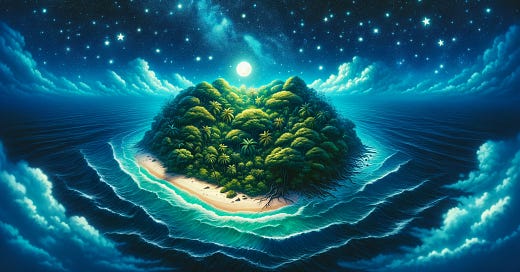The word “lonely” often conjures up a sad feeling. Isolation and separation from others is perceived by most of us as a negative thing, at least in excess.
There’s another way the word is used, though. Lonely can also mean solitary, which I personally regard as very different from the sad meaning of the word. It can also refer to a far-off geographic area or unfrequented area, like a lonely stretch of fields in the middle of nowhere.
The Sentinelese of India’s North Sentinel Island have chosen to be lonely in this willful sense of the word. This is a small, densely forested island in the Andaman archipelago, part of the Bay of Bengal.
This small group of somewhere between a few dozen to a few hundred individuals lives by Dunbar’s Number—everyone knows everyone else, and there’s plenty of social proof if someone needs to borrow money or asks for another favor.
They don’t like to be visited by outsiders, to say the least, and often hurl spears or shoot arrows at people they view as invade…
Keep reading with a 7-day free trial
Subscribe to Goatfury Writes to keep reading this post and get 7 days of free access to the full post archives.




